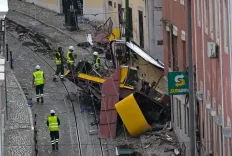What Did the Quad Logistics Sharing Exercise Achieve?

Synopsis
Key Takeaways
- The Quad nations are actively enhancing logistics sharing for disaster response.
- Recent tabletop exercises took place in Honolulu, Hawaii.
- The IPLN initiative aims for faster civilian responses to natural disasters.
- Cooperation spans various sectors, including healthcare and education.
- The Quad was initially formed after the 2004 Tsunami.
Washington, May 8 (NationPress) The Quad member nations — India, Australia, Japan, and the United States — engaged in a tabletop exercise aimed at enhancing the logistics sharing for civilian disaster responses, furthering their impressive collaboration.
The event occurred from April 28 to May 2 at the Asia-Pacific Center for Security Studies located in Honolulu, Hawaii, as announced on Thursday.
The nations convened for a Tabletop Exercise, simulating the launch of the Quad Indo-Pacific Logistics Network (IPLN). The IPLN is a vital initiative that allows Quad nations to utilize shared logistics resources in the Indo-Pacific to facilitate quicker and more efficient civilian responses to natural disasters across the region,” stated the US State Department.
“In conjunction with the Indo-Pacific Partnership for Maritime Domain Awareness, the IPLN signifies the Quad’s dedication to maintaining a free and open Indo-Pacific, highlighting the importance of enhancing practical collaboration to tackle regional issues,” it added.
The four nations are expanding their cooperation on various fronts, including healthcare, climate, education, and research, with full support from their respective governments, regardless of the ruling parties.
The group was established following the catastrophic 2004 Tsunami to consolidate resources for humanitarian assistance during global emergencies. However, it disbanded in 2008 after Australia withdrew due to pressure from China.
The Quadrilateral Security Dialogue, as the Quad is formally known, was revived in 2017, primarily to counter China’s assertive stance in the Indo-Pacific region, marked by its pursuit of unilateral maritime and coastal claims.
The phrase “a free and open Indo-Pacific,” used by the State Department, emphasizes the Quad’s objective of preserving the region's autonomy from China while avoiding explicit references. Nonetheless, in recent years, the partner countries have downplayed the security aspects of their collaboration, with officials actively resisting any characterization of the group as a security alliance.









